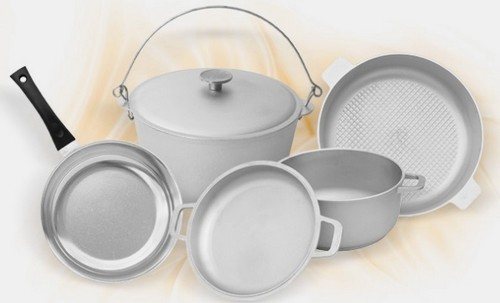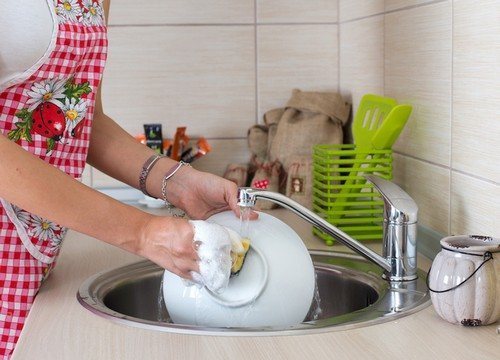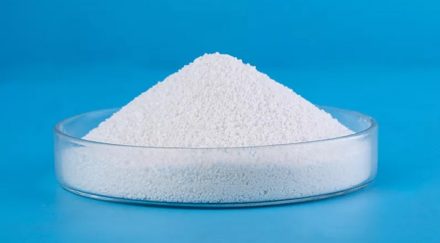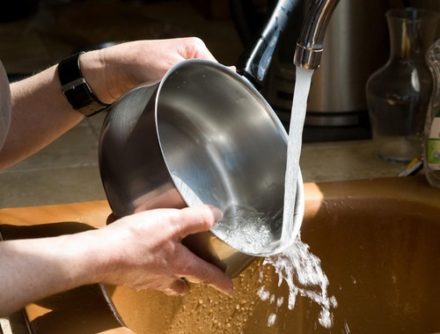Despite the abundance of cleaning powders and dishwashing gels in stores, there are many who support the complete abandonment of household chemicals. Some of them are afraid of allergic reactions and diseases, others expect to save money, and others like to experiment in search of the ideal method of washing dishes. In a word, everyone pursues their own goal when choosing a folk remedy.
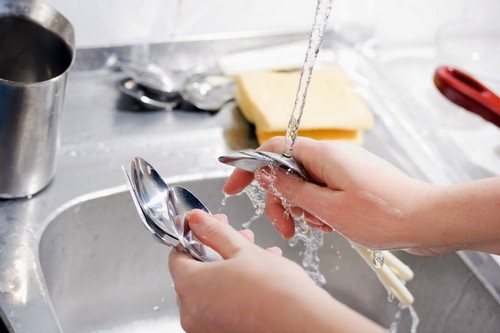
Most popular recipes
Giving preference to natural dishwashing detergents, housewives use the following ingredients:
- Lemon or grapefruit. The pulp or juice of the fruit is used. Helps cope with dark deposits on porcelain and metal dishes, and lime deposits on glass and crystal.
- Baking soda. Apply with a damp sponge. Removes grease and plaque. Removing old stains will require some effort.
- Mustard powder. Dilute with cold water to the consistency of liquid slurry. Apply with a cloth or sponge to cutlery. For severe stains, it is recommended to coat the dishes with prepared mustard paste and leave for 10–15 minutes. Afterwards wash with warm water.
- River sand and wood ash. Used to clean the outer surface of pots, cauldrons and frying pans. Remove grease, soot and burnt food residues.
- Ammonia. A few drops are added to water for washing glass and crystal dishes.
A mixture of baking soda, mustard and water in equal proportions is considered a very effective remedy for any type of stain.
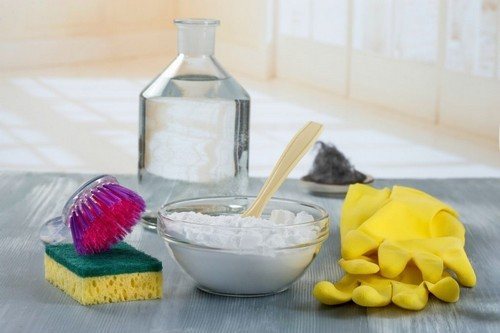
Is it possible to save money?
Mustard powder, soda and ammonia are completely inexpensive. In addition, the packaging of the purchased product lasts a long time. You will be able to wash mountains of dishes. Sand and ash can generally be collected for free. The main thing is to take precautions. The sand must be clean. The ash is obtained by burning wood, without the admixture of foreign elements.
However, prices for dishwashing detergents are currently more than affordable. Gels are used very sparingly. The worst thing for your wallet will be the use of citrus fruits for daily washing of dishes. Expensive and not every contamination can be dealt with. A cheaper option is to use citric acid diluted in hot water instead of fresh fruit.
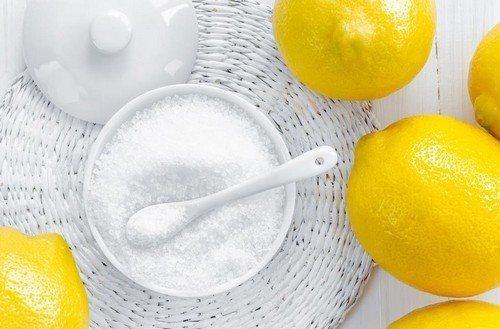
Comparison with store-bought products: what to choose
All folk remedies are quite aggressive, dry and corrode the skin, which cannot be said about dishwashing gels. They add special hand care substances, so it is not necessary to wear gloves.
For children's sets, it is preferable to use natural ingredients, since household chemicals still leave traces on the surface. The child may develop allergies. Until now, many kindergartens and canteens of children's institutions use soda and mustard powder for washing dishes.
If there are children over three years old in the family and there are no allergies, it is recommended to choose liquid dish detergents for every day. They cope with grease, are economical, and do not require much effort to cleanse dirt.It is good to use folk remedies once or twice a week. Natural ingredients deal with dark, yellow and limescale deposits more effectively than store-bought ones.
Thus, by combining folk wisdom and modern technology, you can achieve ideal cleanliness and beauty of dishes.


